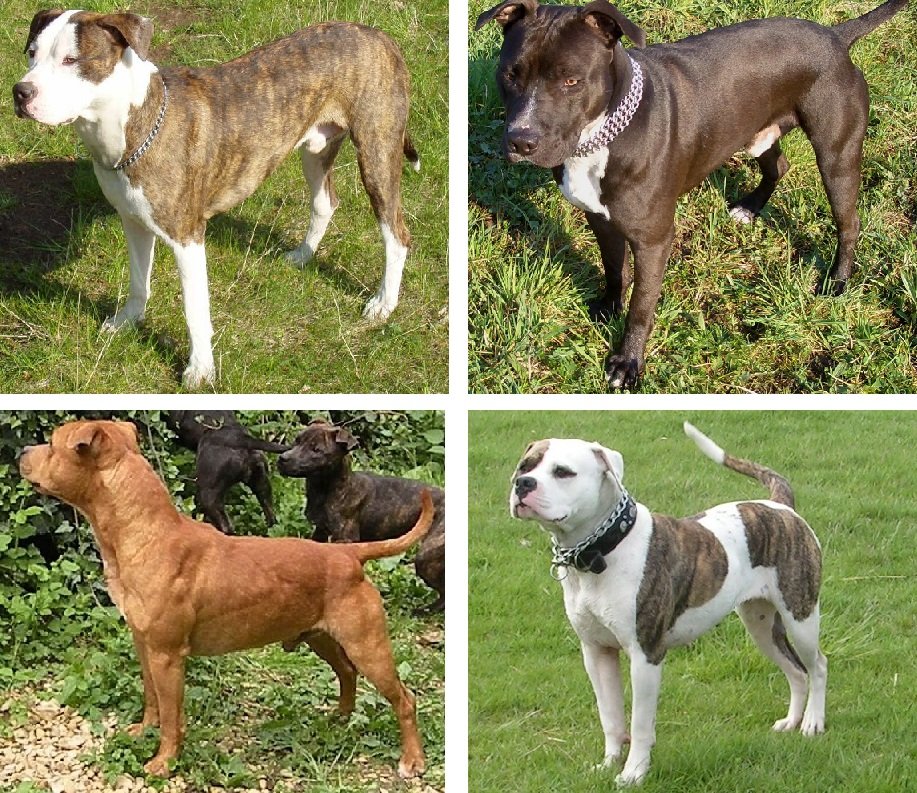Did you know that pit bulls actually derive their name from their ancestry as fighting dogs? These powerful and tenacious breeds were historically bred for pit fighting, a popular spectator sport in 19th-century England. However, over time, pit bulls have gained a misconceived reputation as aggressive and dangerous dogs, despite their potential for being loyal and loving companions.
The name “pit bull” encompasses several different dog breeds, including the American Pit Bull Terrier, Staffordshire Bull Terrier, and American Staffordshire Terrier. While originally bred for their strength and determination in the fighting pit, pit bulls have also shown their versatility and intelligence in various roles, including therapy dogs, search and rescue dogs, and cherished family pets. Despite their reputation, studies have shown that breed-specific legislation targeting pit bulls does not effectively reduce dog bites or improve public safety. Responsible ownership, training, and socialization are key in ensuring that pit bulls, like any other breed, can thrive and be loving companions.
Have you ever wondered how pit bulls got their name? Originally, these dogs were bred for bull-baiting, a popular sport in the 19th century. Their strong, muscular build and tenacious nature made them ideal for this purpose. However, as bull-baiting was banned, pit bulls transitioned into more peaceful roles as guardians and companions. Over time, their name evolved to reflect their history and purpose. Now, pit bulls are known for their loyalty, affection, and gentle nature towards their human companions.

Where Do Pit Bulls Get Their Name?
Pit bulls, also known as American Pit Bull Terriers, are a type of dog that has gained both popularity and controversy over the years. One aspect that has piqued interest is the origin of their name. Where exactly do pit bulls get their name from? Let’s dive into the history and origin of this breed to understand the reason behind their distinctive name.
The History of Pit Bulls
To comprehend the origin of the name, it is essential to explore the history of pit bulls. Pit bulls can trace their roots back to the early 19th century in England, where they were bred for various purposes, including baiting bulls and bears. These dogs were esteemed for their strength, agility, and tenacity.
As the sport of bull-baiting became illegal and less popular in the 1800s, the demand for these dogs shifted towards a new form of entertainment – dog fighting. Pit bulls were ideally suited to this brutal sport due to their muscular build, determination, and loyalty to their handlers.
It was during this era that the term “pit bull” began to emerge. The name referred to the dogs being placed in a pit or enclosed area to engage in dog fighting matches. Over time, “pit bull” became synonymous with the breed that excelled at these competitions.
The Name and its Association
The name “pit bull” is not an official breed designation but rather a general term used to describe several breeds that share similar physical characteristics. While American Pit Bull Terriers are the most commonly associated breed, other breeds like American Staffordshire Terriers and Staffordshire Bull Terriers are also referred to as pit bulls.
The term “pit bull” has both positive and negative connotations. On one hand, pit bulls are known for their loyalty, intelligence, and affection towards their human companions. They can be excellent family pets when raised in a loving environment with proper training and socialization. However, the negative side of the association comes from their use in illegal dog fighting activities, which has perpetuated stereotypes about their temperament and behavior.
It is important to note that a dog’s behavior is shaped by various factors such as genetics, upbringing, and individual personality. Stereotyping an entire breed based on the actions of a few is unfair and unfounded. Responsible ownership and proper training can lead to well-behaved and loving pit bulls.
The Pit Bull Controversy
The name “pit bull” is not without controversy. The negative perception surrounding this breed has led to breed-specific legislation (BSL) in many places, imposing restrictions or outright bans on owning pit bulls. Advocates argue that such measures unfairly punish responsible owners and well-behaved dogs.
Numerous organizations and individuals are working towards changing the public perception of pit bulls. They aim to educate the public about responsible ownership and showcase the loving and gentle nature of pit bulls when properly cared for. Many pit bull enthusiasts and owners assert that responsible ownership, which includes obedience training, socialization, and regular exercise, is the key to raising well-behaved dogs, regardless of breed.
In conclusion, pit bulls get their name from the pits or enclosed areas where dog fighting matches took place. While this name has both positive and negative connotations, it is essential to look beyond labels and stereotypes and judge each dog individually based on their behavior and upbringing. By promoting responsible ownership and advocating for fair treatment, we can help change the narrative around pit bulls and ensure they receive the love and care they deserve.
Key Takeaways: Where Do Pit Bulls Get Their Name?
- Pit bulls get their name from their history of being bred for dog fighting in pits.
- They were originally known as “Pit Bull Terriers,” but the name was later shortened to “Pit Bulls.”
- The term “pit bull” is used to refer to several breeds, including the American Pit Bull Terrier and the Staffordshire Bull Terrier.
- Pit bulls gained popularity as working dogs and companions due to their strength, loyalty, and intelligence.
- Unfortunately, pit bulls also face unfair stereotypes and discrimination due to misconceptions about their temperament.
Frequently Asked Questions
Have you ever wondered about the origins of the name “pit bull”? Here are some interesting questions and answers about how pit bulls got their name:
Q1: How did pit bulls get their name?
A1: Pit bulls got their name from the activity they were initially bred for – fighting in pits. In the early 19th century, pit bulls were commonly used in dog fighting rings, where they would enter pits to engage in combat with other dogs. These fights were organized as a form of entertainment and gambling. The breed was specifically chosen for its strong build, tenacity, and fighting ability.
Over time, the term “pit bull” became a general term used to describe several dog breeds that were involved in pit fighting. Today, the commonly recognized breeds referred to as pit bulls are the American Pit Bull Terrier, the American Staffordshire Terrier, and the Staffordshire Bull Terrier.
Q2: Are pit bulls naturally aggressive dogs?
A2: It would be unfair to label all pit bulls as naturally aggressive dogs. Like any other breed, pit bulls’ behavior is influenced by various factors, including genetics, socialization, and training. It’s important to note that aggression is not a trait exclusive to pit bulls. Any dog, regardless of breed, has the potential to display aggressive behavior if not properly trained or socialized.
Pit bulls, when raised in loving and well-socialized environments, can be friendly, loyal, and gentle companions. It’s crucial for owners of any breed, including pit bulls, to prioritize responsible ownership, proper training, and socialization to ensure they grow into well-rounded and friendly dogs.
Q3: Do pit bulls have lockjaw?
A3: The myth of pit bulls having “lockjaw” is just that – a myth. Pit bulls, like any other canine, do not possess any anatomical characteristic that enables them to lock their jaws. The misconception arises from their strong jaw muscles, which allow them to exert a greater force when biting compared to some other breeds. However, their jaws are not physically locked in any way.
Studies have shown that the bite force of pit bulls is not exceptional when compared to other large dog breeds. It’s important to note that responsible pet ownership, obedience training, and socialization are key to preventing any potential incidents, regardless of the breed.
Q4: Why are pit bulls often misunderstood?
A4: Pit bulls are often misunderstood due to negative media portrayals and misconceptions surrounding the breed. Sensationalized stories about pit bull attacks, coupled with breed-specific legislation in some areas, have unfairly stigmatized pit bulls. This has led to misconceptions that all pit bulls are aggressive and dangerous.
In reality, a pit bull’s behavior is shaped by various factors, including its individual temperament, upbringing, and training. Studies have shown that a dog’s behavior is more influenced by these factors than its breed alone. Breed-specific legislation fails to address the underlying factors that contribute to dog aggression, focusing instead on breed generalizations that are not scientifically supported.
Q5: Are pit bulls good family pets?
A5: Pit bulls can make wonderful family pets when raised in a loving and responsible home. Like any dog, early socialization, obedience training, and consistent leadership are crucial for their well-being and integration into a family setting. Pit bulls are known for their loyalty, affection, and love for their human family members.
It’s also important to note that responsible pet ownership includes properly supervising interactions between dogs and children, regardless of the breed. Proper training, positive reinforcement, and providing a loving home environment are vital in bringing out the best qualities in any family pet, including pit bulls.

16 Male Pitbull Names // What is your Pit Bull’s name?
Summary
So, where did pit bulls get their name? Well, it turns out that “pit bull” is not a specific breed, but rather a term used to describe a group of similar dogs. These dogs were historically bred for fighting in pits, which is how they got their name.
Despite their reputation, pit bulls can actually be loving and friendly if they are properly trained and socialized. It’s important to remember that a dog’s behavior depends on how they are raised and treated by their owners. And while it’s essential to be cautious around any dog, judging them solely based on their breed is unfair. It’s crucial to approach each dog as an individual and not make assumptions based on stereotypes.
